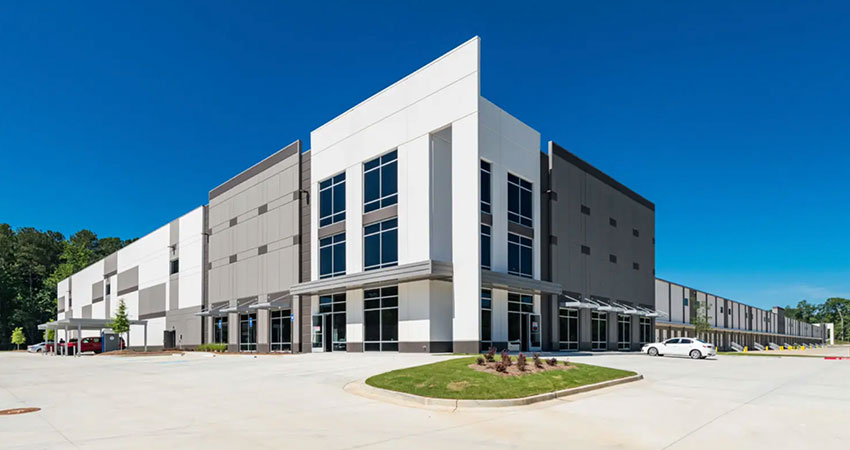Stord’s new Atlanta fulfillment center
Stord, a provider of cloud-based supply chain services, has raised $90 million in a new round, making it a member of the ever-growing unicorn club, and warehouses in Connecticut and Nevada to enhance fast delivery and use the facilities as test beds for its technology.
The round was led by Kleiner Perkins, with participation from Lux Capital, D1 Capital and Palm Tree Crew, and existing investors BOND, Dynamo Ventures, Founders Fund, Lineage Logistics and Susa Ventures.
It was also joined by Fanatics founder Michael Rubin, Carlos Cashman, CEO of Thrasio, Max Mullen, co-founder of Instacart and Will Gaybrick, CPO at Stripe. Stord is now valued at $1.1 billion and has raised $205 million to date.
Mario Paganini, head of marketing for Stord, said the new capital will be invested in software enhancements to make it more accessible to SMBs on a self-service basis, as its clients have predominantly been enterprise and mid-market firms.
Stord will also continue to invest in its physical network, opening its first company-owned fulfillment center in Atlanta. And through the acquisition of Fulfillment Works it added that company’s main facility in North Haven, CT, as well as one each in Shelton, CT and Rendo, NV, enhancing Stord’s ability for merchants to offer coast-to-coast one- or two-day ecommerce fulfillment.
Stord is also hiring across engineering, product, marketing, supply chain, operations and sales teams, to help it manage 3x growth the past three years, Paganini said.
Through the Stord network, shippers have access to 550+ warehouses run by itself and partner 3PLs, and 20,000 carriers, digital freight shipping and an integrated logistics network.
“Our goal is not to have a first-party warehouse in every city in North America,” Paganini said. “Regardless of whether your inventory is with Stord or a partner, you get the same best-in-class, seamless integrated experience.”
Paganini said another advantage of having owned assets is it gives Stord more flexibility in terms of testing out new hardware and software before it’s rolled out across the network, or running customized projects for clients. For example, Stord is testing co-bots from Locus Robotics at its Atlanta facility to gauge how it impacts productivity and human/bot interaction.
“We have a level of control and customization that even with the best partners it’s difficult to get,” he said. “We want to make sure new processes and technology, like workflow and racking, are ready for prime time. The goal ultimately is developing the learnings faster and taking them to market, spread out across our partners.”

